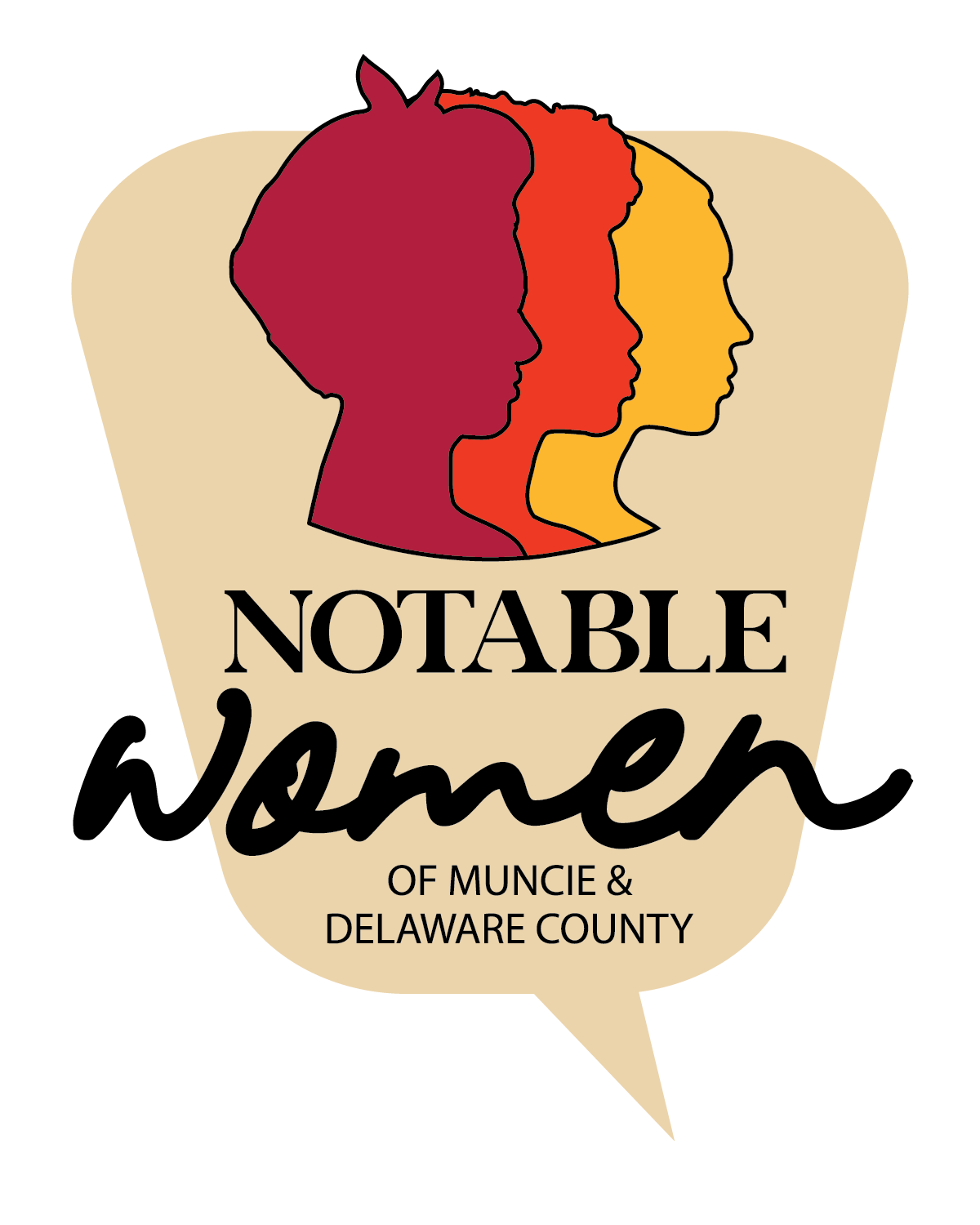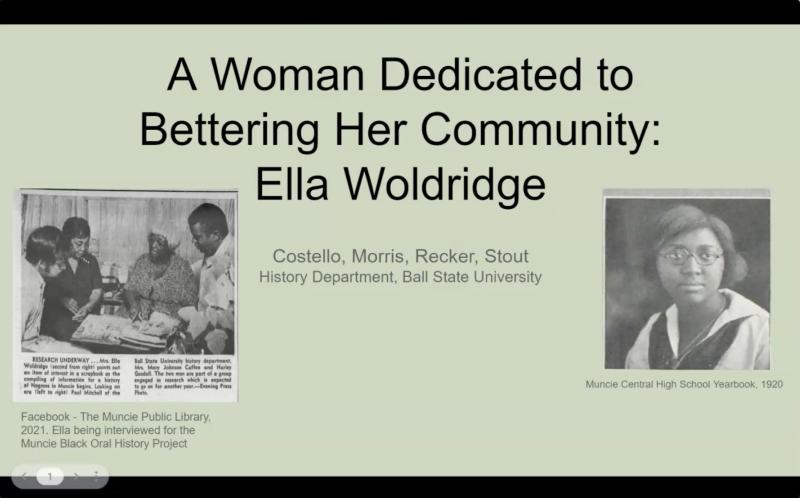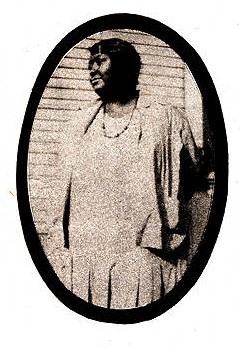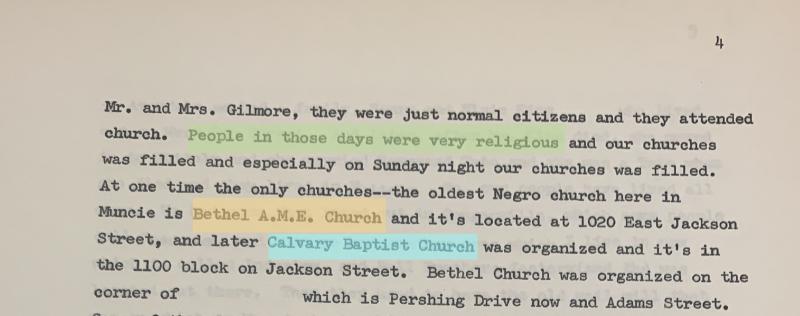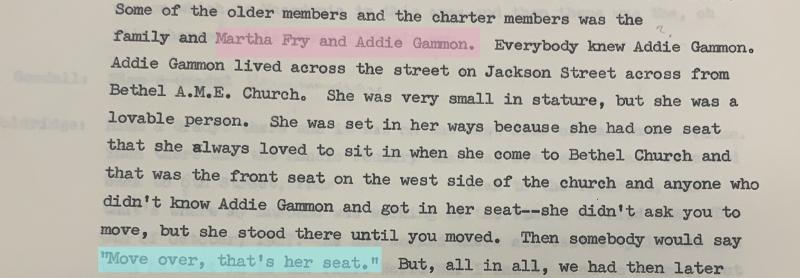Ella Keith Woldridge
Any follower of The Notable Women Project, either on social media or in public lectures, might recognize Ella Keith Woldridge's name (1901-1990). In the early twentieth century she was among the few Black students to graduate from Muncie Central High School. She founded and led the Paramount Community Gospel Church for decades. Her volunteerism led to a community service award created in her name. In February 2022, the Indiana State Senate honored Ella Keith Woldridge as a "notable African American woman in Delaware County history."
This biography video was researched and created by Alex Costello, Christopher Morris, Kaia Recker, and Carole Stout.
As this video shows, Ella Keith Woldridge's civic and religious life was full. She participated in many activities found in other notable women's biographies. She was a member of many clubs, including the Booker T. Washington Franchise League, which campaigned for women's suffrage. She taught Sunday school at the Bethel African Methodist Episcopal Church before moving to Paramount.
Woldridge's working life also echoes other biographies. Like many young working-class women, she worked as a maid in a private home. Later she worked in whitelining and packing at the Ball Brothers factory, which was once Muncie's largest employer.
However, unlike most other women, Woldridge became a society reporter, chronicling Muncie's social life for the Midwest's Black newspapers, including the Chicago Defender and the Indianapolis Recorder. Her knowledge, volunteerism and long-life led to her involvement in oral history projects, which are a feature of Muncie history.
In 1971, Hurley Goodall interviewed her for the Oral History of the Negro in Muncie project, which Ball State University Archives and Special Collections preserves. Goodall later wrote a book based on these interviews, which led to another oral history project called The Black Middletown Project (1980). The transcript of Woldridge's interview allowed this team to recreate a life from the subject's own words.
Often oral history projects focus on under-represented groups to preserve distinct practices and beliefs. Interviews can collect accounts of the past that are thematic or open-ended. Goodall's project hoped to chronicle a thriving Black community during a period of structural racism.
Much of the interview focuses on the institutions, places, and people she encountered in the early and mid-twentieth century. The transcript excerpts below are conversational and rich in information. Religion had a central place in Woldridge's life and here she names the oldest Black churches and their locations.
Oral histories can also provide portraits of people often ignored in document-based histories. Personalities can also shine through interviews in ways that census records do not show.
In the transcript below, Woldridge describes Addie Gammon, an older member of Bethel AME Church. Gammon was "lovable" but also "set in her ways." She always sat in the front row on the church's west side. Anyone who accidentally sat in her seat would get a hard stare until they realized their mistake. How else would this amusing and unnerving habit be preserved for fifty years, if not for Woldridge's interview?
Many other Town On Fire biographies discuss Black churches and the activities they sponsored. Like Ella Keith Woldridge, Josephine Jones Pierson and Belle Kelley were active in Sunday school and other church-based clubs. Julia Coleman was a pastor's wife and periodically preached. Woldridge's transcript provides a window onto her life that is missing from these other projects.
Listen to the methodology video below to hear how the team discovered and navigated this very special source.
This methodology video was created by Alex Costello, Christopher Morris, Kaia Recker, and Carole Stout.
Where Woldridge's interview offers historians a detailed account of a Black woman's life and community, during World War I the War Mothers was a segregated organization. Click on The War Mothers of Delaware County to see how historians pushed past the color and class lines.
